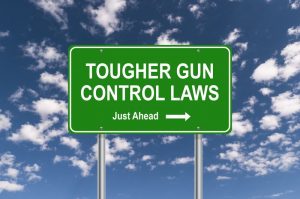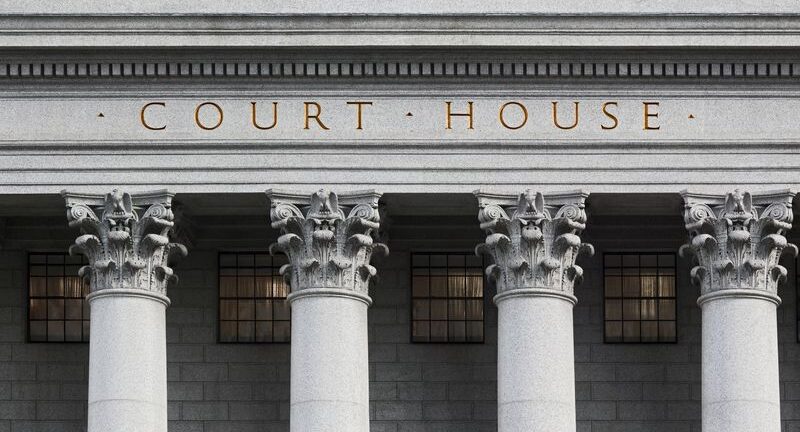
 According to the National Coalition Against Domestic Violence, there are approximately 20,000 daily calls to Domestic Violence (DV) hotlines.
According to the National Coalition Against Domestic Violence, there are approximately 20,000 daily calls to Domestic Violence (DV) hotlines.
The National Institutes of Health (NIH) reports “gun availability” results in a substantially higher incidence of domestic homicides.
In intimate partner relationships, the abusive partner’s access to a gun increases the chances of murder on women (femicide), making it anywhere to 5x – 8x more likely. When guns are involved, statistics indicate abusers inflict the most damaging and severe forms of domestic abuse.
“Abusers with guns” were substantially more likely of using a gun in the worst-case-scenario abuse incidents, resulting in femicide. At the same time, a victim’s access to a firearm may also tend to reduce the incidence of death, if only slightly. See “Risk Factors for Femicide” by the NIH.
Similarly, the relationship between mental health issues and criminality (history of criminal charges) is remarkable. There is a vast body of scientific literature documenting the very real and very substantial correlation between criminal behavior and mental illness.
- 283,000 prisoners in US jails and prisons were “mentally ill” (per a 1998 study)
- Surveys among prisoners indicate self-reporting of a diagnosed mental health issue or time in a psychiatric facility in 16% of state prisoners, 16% of jail inmates, and 7% of federal prisoners
- The incidence of mental illness is nearly 3x more likely than the general inmate population
At the same time, disorders involving the use of controlled substances are far more likely to result in criminal charges. Patients with drug or alcohol issues have a higher number of arrests over their lifetime than those diagnosed with personality disorders, affective disorders, and schizophrenia.
Indeed, in instances where substance abuse disorders and personality disorders are the primary diagnoses, those patients are 240% more likely to commit violent crimes than patients diagnosed with mental health issues without attendant substance abuse problems.
What is a Red Flag Law?
“Raising a Red Flag” has traditionally been a visible, literal warning-sign. Red flags may indicate danger, immediate peril, or live fire exercises in the military.
As it relates to family law and domestic violence, some states allow petitioners to for file for a Court Order or TRO (which stands for Temporary Restraining Order). They may also be referred to as an Extreme Risk Protection Order (ERPO).
North Carolina authorizes both No Contact Orders (Chapter 50C) and Domestic Violence Protection Orders under Chapter 50B. Domestic lawyers in Charlotte commonly refer to DVPO’s by their shorthand statutory reference: “50B Orders.”
Strictly speaking, NC has not formally adopted Red Flag Laws. Yet, there are protections afforded under the law to remove weapons in certain circumstances.
In the event an Order is issued, the Red Flag Laws generally prohibit the possession and purchase of guns and possibly ammunition.
Recently, Red Flag Laws, which are a type of gun control regulation, have been enacted nationwide with increasing frequency.
Seizures of weapons and gun laws tend to be highly controversial. Progressive-minded advocates for gun control are fans. Proponents of the 2nd Amendment despise them.
Clearly, there is not an absence of opinions on the topic.
The stated purpose of red flag legislation is to allow family members, friends, (even roommates in some instances), and law enforcement, to institute legal proceedings, in the form of lawsuits, complaints, and restraining orders, to remove weapons, by force if necessary.
While the laws vary from state-to-state, proof and testimony are often required, indicating a serious risk of harm.
As to standards of proof, the legal standard in North Carolina for a 50B Order is “by the greater weight of the evidence.” One would assume, as is the case with many civil lawsuits, that same standard would apply.
The serious risk imposed may involve potential “self-harm” (suicide) as well as physical harm and serious bodily injury to others.
North Carolina Gun Laws
NC gun laws, under the Pre-emption Sections of the general statutes, prohibit a firearms registry of any form by a government entity. There are also prohibitions against local ordinances and statutes involving the legal carrying of handguns pursuant to N.C.G.S. § 14-415.23.
Put simply the North Carolina General Assembly has in large measure preempted legislation by local agencies, reserving for itself that discretion and power.
While certain municipalities are granted certain exceptions, especially as it pertains to carrying weapons on government property and/or limitations to the concealed carry permit laws, State law supersedes, if not outright precludes, enhanced gun control laws on the local level.
There are other firearm restrictions under Article 54A of the Felony Firearms Act, which preclude gun possession involving:
- Convicted Felons
- Persons Acquitted of Crimes by Reason of Insanity
- Persons Acquitted of Crimes by Determination in Incapacity to Proceed
- Concealed Carry of Firearms without Lawful Permit
Federal Firearm Laws
- 18 U.S.C.S. 922 (g)(4)
- Prevents Possession of Firearms or Ammunition
- Adjudication as “mentally defective” or
- Committed to a mental institution
- 27 CFR 178.11
- Adjudicated a mental defective
- Danger to Others
- Danger to Self
- Lacks Mental Capacity of Manage Own Affairs
- Finding of Insanity in a Criminal Case / Criminal Charges
- Incompetent to Stand Trial
- Commitment to a mental institution
- Adjudicated a mental defective
NC Domestic Violence Protective Orders
A North Carolina DVPO allows the Court Order removal of weapons both during the temporary 10-day Order pursuant to an Ex Parte Complaint and Motion as well as an Order extending the period of restraint following a hearing on the issue.
That means a validly issued 50B Order may authorize local law enforcement to seize weapons from the Defendant.
Criminal charges are not required, although in instances of physical domestic violence a Criminal Summons or Warrant for Arrest may be simultaneously brought by the victim.
Domestic Violence Lawyers – Powers Law Firm PA
If you are a victim of domestic violence, seek medical attention if you’ve been injured or harmed in any way. There are legal options available to protect both you and your children.
You may also call us for legal advice.
If you’ve been wrongfully accused of DV or have criminal charges associated with assault, battery, communicating threats, or injury to personal property, exercise your right to remain silent and retain experienced legal counsel.
Follow any Conditions of Release or Bond. Do not violate any Court Order. Obey and follow the terms and conditions of the 50B, as directed.
Issues of domestic violence are regularly encountered in Charlotte Family Court.
Complaints and Motions for a DVPO (under Chapter 50B) may be subject to a Chapter 50 action for separation, divorce, and child custody.
We believe it’s imperative to seek legal counsel early on. Understanding your rights under the NC family laws makes for sound, smart decisions – Bill Powers, Charlotte Divorce Lawyer
CALL NOW for legal consultation: 704-342-4357
You may also email Bill Powers confidentially at: Bill@CarolinaAttorneys.com
Related Posts
Domestic Violence and the LGBT+ Community
According to the National Coalition Against Domestic Violence, LGBT+ persons are...
Is Domestic Violence a Federal Offense?
We've all heard the saying, "Don't make a federal case out of it." It's meant to...

